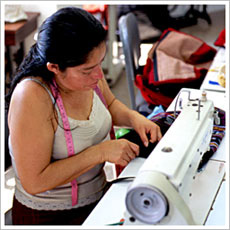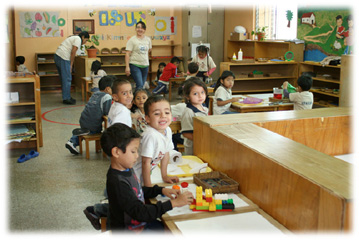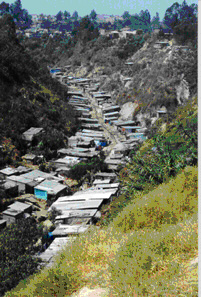- In stock, ready to ship
- Inventory on the way
Enjoy the smell of coffee when placing a hot cup on this aromatic trivet. Covered with traditional, hand-woven Guatemalan fabric, this trivet is filled with coffee beans and will protect your surfaces from hot dishes, teapots or carafes.
These functional and aromatic trivets are made by women artisans from the UPAVIM cooperative on the outskirts of Guatemala City. UPAVIM, which stands for United for a Better Life, is an 80 member artisan enterprise helping women through social and economic empowerment. In addition to training women in creating various handmade textiles, UPAVIM has established a school, a pharmacy and a bakery within their cooperative.
- Measures 1” high x 4-1/4” diameter
Handmade in Guatemala and fair trade imported.

UPAVIM Crafts is a cooperative of women who live in marginalized communities on the outskirts of
Amongst some of the achievements, In 2002 the cooperative was awarded the best Non-traditional Textile Exporter award by AGEXPRONT, a national trade organization, also UPAVIM’s Montessori school was recognized by the Guatemalan government.

The main product line made by these women artisans includes bags, purses, wallets, aprons and holiday ornaments, most of these products are made from the traditionally woven Mayan textiles which are locally available. By procuring the traditional textiles, the organization also helps promote traditional weavers of the region and brings a local flavor and uniqueness to their products. This also cuts down the role of middlemen and creates a chain of fair wages and fair prices - from the weaver, to the seamstress, to the customer.
Apart from craft making, UPAVIM also initiated other small scale businesses which include a bakery, soy milk factory, and an internet center. The main aim was to increase the means of employment for the community members of La Esperanza, so that they can gain optimum benefits from the program.
 The cooperative is located in a squatter settlement called La Esperanza (Hope), where every day the communities faced various social challenges including gang violence, illiteracy, unemployment, malnutrition, alcoholism, child abuse and drug abuse. Even though the challenges for community growth in an area that receives little government attention may be high, but today after 2o odd years and initiatives by UPAVIM and the women, the conditions have changed for the better in this “City of
The cooperative is located in a squatter settlement called La Esperanza (Hope), where every day the communities faced various social challenges including gang violence, illiteracy, unemployment, malnutrition, alcoholism, child abuse and drug abuse. Even though the challenges for community growth in an area that receives little government attention may be high, but today after 2o odd years and initiatives by UPAVIM and the women, the conditions have changed for the better in this “City of





